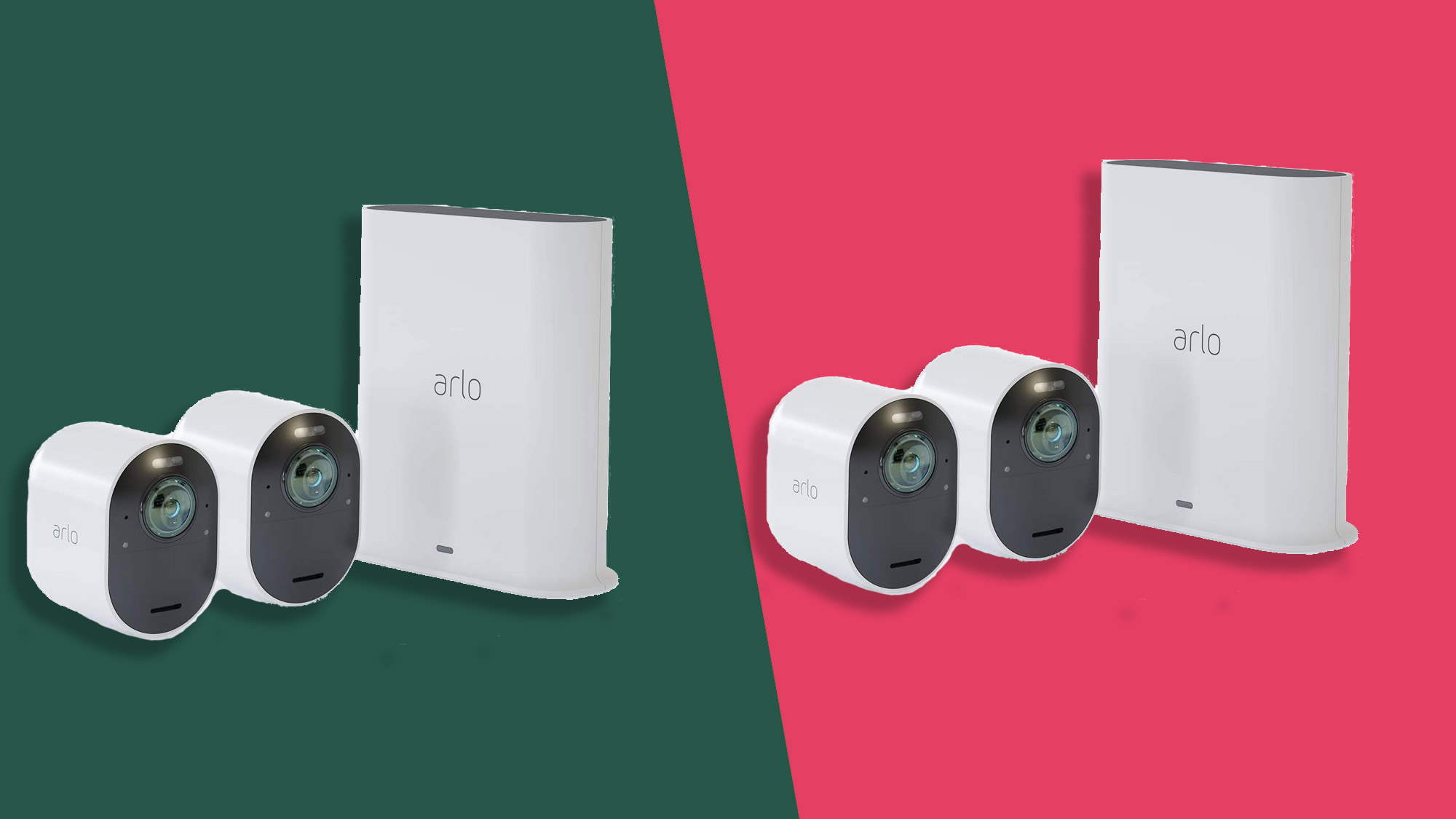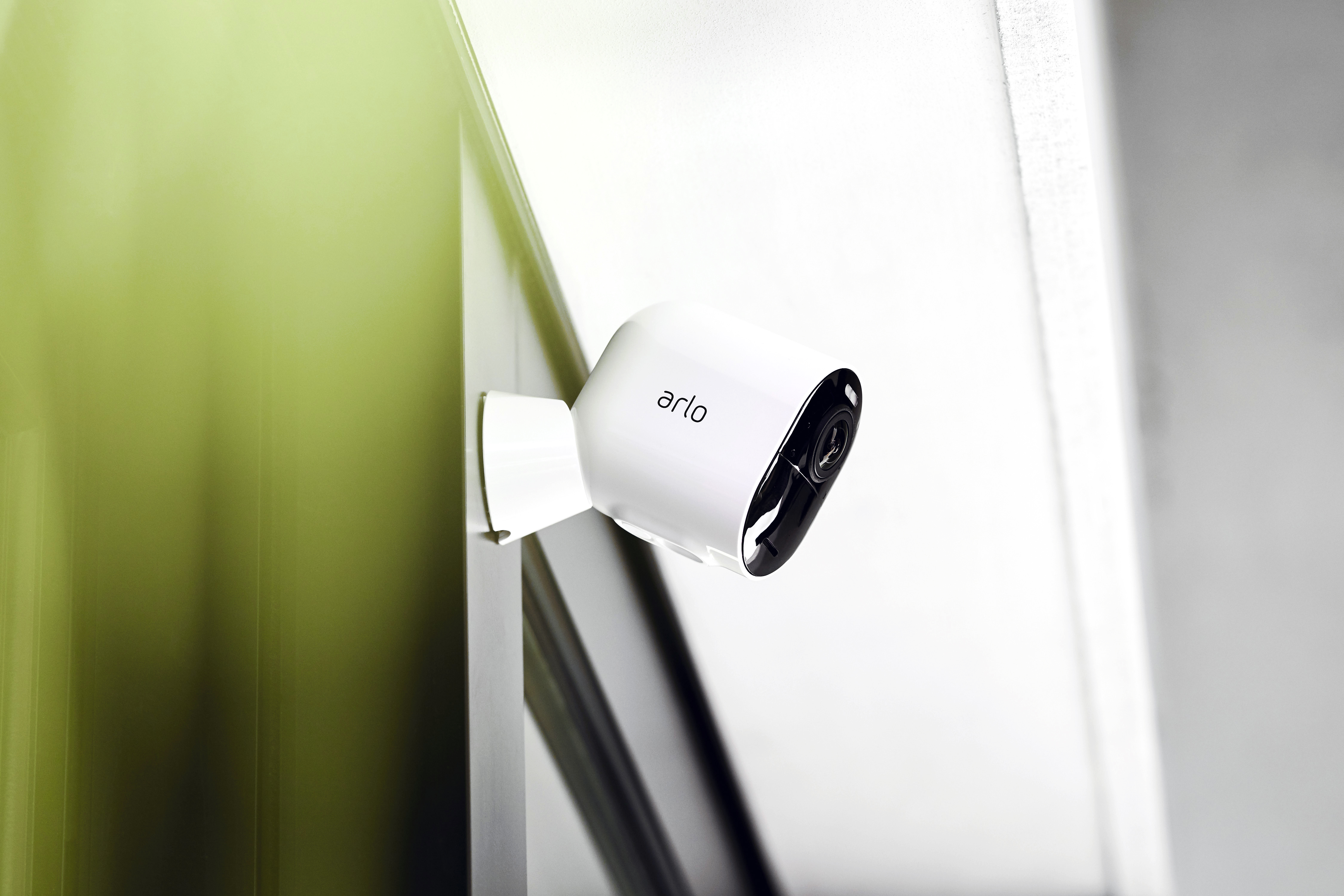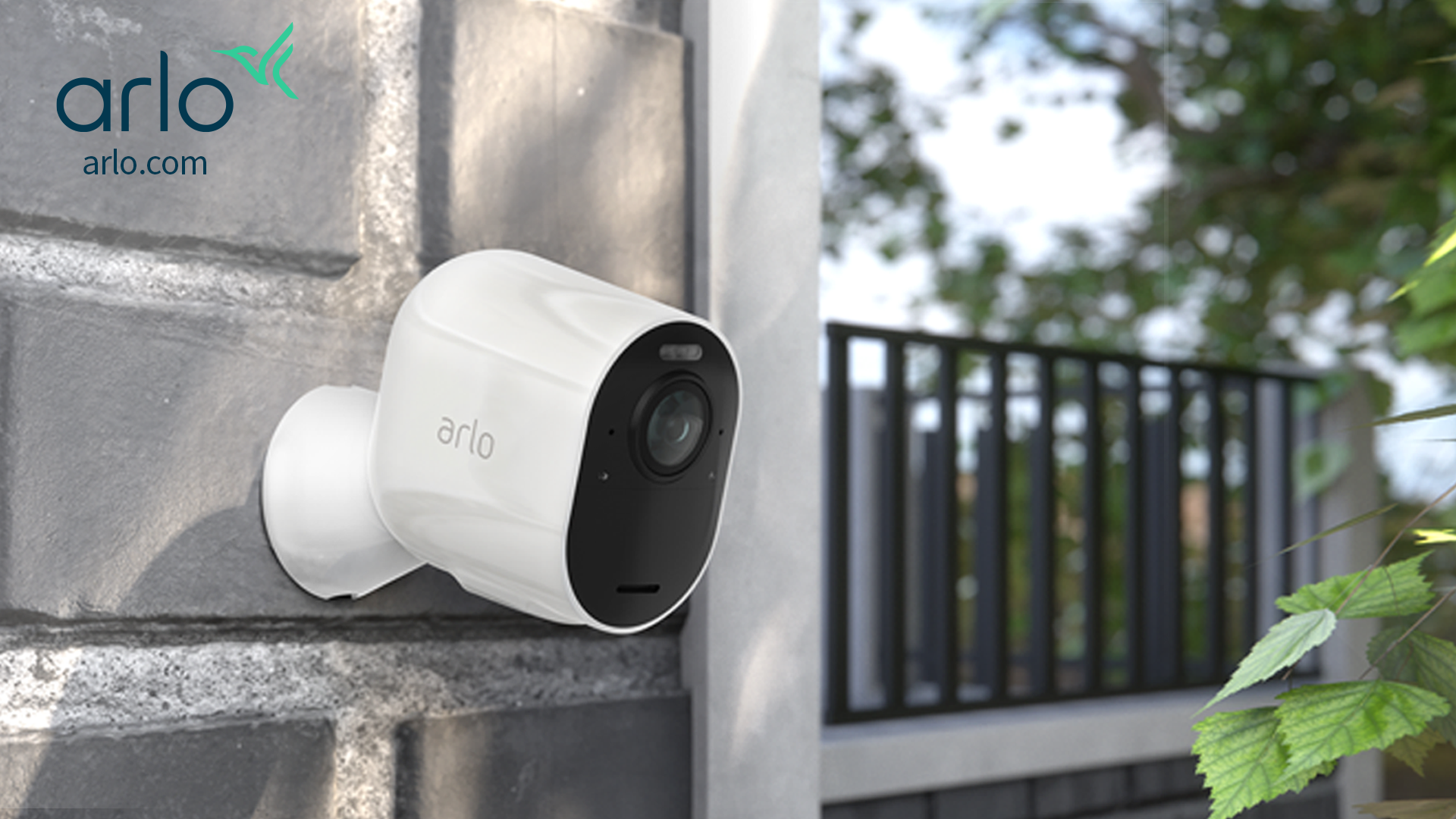Arlo Ultra vs Arlo Ultra 2: which 4K security camera is right for you?
Which Arlo 4K security camera is best for keeping your property protected?

The best home security cameras are a great way to provide peace of mind letting you check in on your home when you’re not around. They’ll alert you if they detect motion so you can take appropriate action, and they’re far easier to install than traditional wired CCTV systems.
So it’s not surprising that almost 20% of US homes have a home security camera installed, according to Safety.com’s home security survey.
Arlo was one of the first brands to produce home security cameras in 2014, and since then has released a number of models that build on the last with improved video quality and handy features to cut down on the number of false alerts.
It’s first 4K home security camera, the Arlo Ultra is being discontinued as the brand has launched the Arlo Ultra 2. However stock of the Arlo Ultra is still available, although its dwindling fast - in part because the price of the Ultra has been significantly cut making it more attractive than ever. So should you rush out and buy the Ultra, or wait and plump for the Ultra 2 at your leisure? We’ve rounded up the key differences between the two and tested them head to head to help you decide.
Arlo Ultra and Arlo Ultra 2 key differences
On the surface, the Arlo Ultra and Arlo Ultra 2 look identical and can both record footage in 4K . Both cameras use a SmartHub to connect to the internet rather than attaching to your home Wi-Fi network.
This SmartHub creates its own individual Wi-Fi connection with the Ultra and Ultra 2 cameras, which is more secure than a direct link between your router and the security camera. This ensures its less likely to be intercepted by unauthorized users and also offers local storage removing the need to subscribe to Arlo Secure, the brands online storage service.
In fact, the distinction between the two cameras comes down to one feature, but it could make all the difference to just how effective your home security camera is at protecting your property.
Get daily insight, inspiration and deals in your inbox
Sign up for breaking news, reviews, opinion, top tech deals, and more.
The Arlo Ultra 2 supports both 2.4GHz and 5GHz Wi-Fi bands, while the Arlo Ultra only supports 2.4GHz. This means the Arlo Ultra 2 camera can be placed further away from the SmartHub than the Arlo Ultra - if you have a large property and need a longer-range Wi-Fi connection, this will make all the difference to which camera you choose.

Best Arlo Ultra deals
Read on to discover how these two 4K home security cameras compare – or, if you’ve already decided which of the two you wish to buy, check out the best prices right now for both products below:
Price
As we’ve already mentioned, the Ultra home security cameras sit at the top of Arlo’s range, so unsurprisingly, they’re the most expensive models offered by the brand.
The Arlo Ultra starts from $399 / £314.99 / (around AU$550) for a one-camera kit, which includes the smart hub. This kit isn’t currently available in Australia however.
A two-camera kit will set you back $599.99 / £490 / AU$826. There’s also a three-camera version available for $897 / £629.99 / AU$1,149, and in the UK you can pick up a four-camera kit too, for £799.99.
Single add-on cameras, which don’t include the smart hub, will set you back $265 / £229.99 / AU$312.
The Arlo Ultra 2 has been available in the US and Australia since October 2020, while it only launched in the UK in April 2021. New stock of the original Ultra is no longer being produced, hence why there’s less choice of camera kit available in the US and Australia.
The Arlo Ultra 2 is a little pricier than its predecessor, starting at $599.99 / £629.99 / AU$799 for a two-camera kit (unlike the Arlo Ultra, a one-camera kit isn’t offered).
There’s also a three-camera kit priced at $899.99 / £809.99 / $1,049.99, while in the US and the UK there’s a four-camera kit that costs $999.99 / £989.99.
Single add-on cameras that don’t include the smart hub are priced at $299.99 / £314.99 / AU$449.99.
As with the majority of home security cameras, if you want to review footage recorded by the camera at a later date, you’ll need to subscribe to a cloud storage plan (although you can record footage on your own device - more on that later).
All Arlo cameras use Arlo Secure, which costs $4.99 / £3.99 / AU$7.49 per month and ensures 4K footage recorded by the camera is stored for up to 30 days.
There’s also a $14.99 / £12.9 / AU$21.99 subscription plan available, which can be used with the Arlo Ultra and Arlo Ultra 2. However, this only stores footage at a maximum resolution of 2K - to choose this option would make investing in Arlo’s 4K cameras a bit, well, pointless.
Arlo Smart also gives you access to handy AI features such as being able to identify if the source of motion was a person, animal, vehicle or simply a tree rustling in the wind. Both cameras come with a three-month free trial of Arlo Secure.

Design
As we’ve already mentioned, the Arlo Ultra and Arlo Ultra 2 look identical, with a glossy white casing and a sleek black face featuring the camera lens and LED spotlight sit (to ensure color footage even at night). They both have a 180 degree field of view, and can record footage in 4K.
Both cameras, which are weatherproof and can be used inside or outdoors, are powered by a rechargeable battery, although they can also be hard-wired too. They can be positioned freestanding or wall-mounted, and use a SmartHub to connect to the internet.
However, while the Arlo Ultra 2 supports both 2.4GHz and 5GHz Wi-Fi bands, the Arlo Ultra only supports 2.4GHz.
Features
Both the Arlo Ultra and the Arlo Ultra 2 are effective at monitoring for motion and alerting you if activity is detected. On test, we found both cameras were quick to alert us when motion was detected, and we were impressed by the quality of the footage.
We mounted the cameras on the exterior of our property, in the middle of the second storey, so the whole of our driveway was taken in by the camera’s field of view. The 4k resolution meant that when activity was detected, we were able to zoom in on the footage and still be able to pick out details clearly, such as the number plate of the car parked on the drive - something cameras that record in 2K and Full HD struggle with at this height.
The Arlo Ultra and Ultra 2 can also be set to automatically zoom in when motion is detected, and track the subject. We found this feature was handy and effectively followed the subject, but because the image has been zoomed, it’s not the same clarity as footage recorded when this feature is turned off.
We used the free trial of Arlo Secure Plus when testing the cameras, and found both were accurate at identifying the course of the motion as well, ensuring we weren’t plagued by false positive alerts.
Verdict
When it comes to choosing between the Arlo Ultra and the Arlo Ultra 2, the size of your property and the distance you want to position the camera from the SmartHub will affect which of the two home security cameras you should plump for.
If you plan on using the camera relatively close to the SmartHub, then the Arlo Ultra will suffice, and as it's more affordable than the Arlo Ultra 2, it’s kinder to your wallet. Although, as stock of the camera is no longer being produced, we’d urge you to buy sooner rather than later so you don’t miss out.
However, if you have a large property and want to position the security camera a longer distance from the SmartHub, the Arlo Ultra 2 is a better option. The longer range Wi-Fi will ensure that the camera doesn’t frequently drop internet connection, meaning it isn’t able to detect motion and alert you if anything untoward happens.
- Check out these great home security camera deals
Carrie-Ann Skinner was formerly Homes Editor at TechRadar, and has more than two decades of experience in both online and print journalism, with 13 years of that spent covering all-things tech. Carrie specializes in smart home devices such as smart plugs and smart lights, as well as large and small appliances including vacuum cleaners, air fryers, stand mixers, and coffee machines. Carrie is now a copy editor at PWC.
